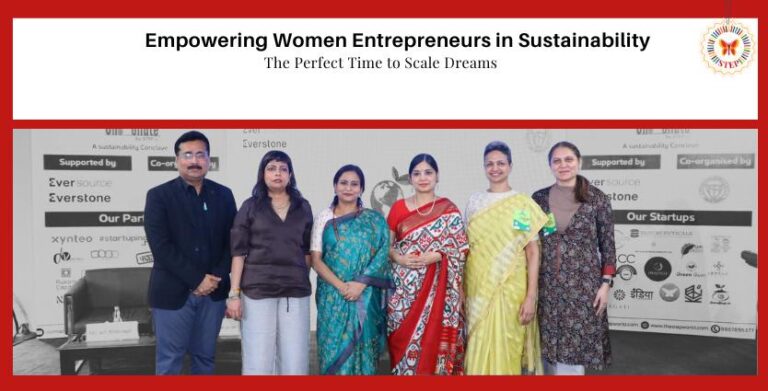Meenakshi Shahi: Bringing Social Equity through CSRL Super 30
“We can effectively utilize our children’s most valuable learning years. The traditional education system needs to move beyond rote memorization and theoretical knowledge. Instead, it should emphasize practical skills that are relevant to the modern workforce. This includes critical thinking, problem-solving, communication, collaboration, and adaptability,” says Meenakshi Shahi, Director at the Center for Social Responsibility and Leadership (CSRL), an NGO working towards creating social equality.
CSRL aims to drive positive change in less privileged households across India through its flagship project, Super 30.
In 2023, out of 1,050 financially weak students mentored by CSRL, a remarkable 99% of students cleared NEET, and 81.4% cleared JEE Main.
About CSRL
CSRL has been offering free 11-month residential coaching programs to underprivileged students from economically challenged sections of society, preparing them for admission into IITs, AIIMS, and other premier engineering/medical colleges.
CSRL collaborates with Public Sector Undertakings like GAIL, Oil India, IGL, Petronet LNG, etc. It operates at 27 different locations across India.
Selection Process
The selection process includes a written test based on the syllabus of classes 11 and 12, followed by an interview with qualified faculty and the project mentor of the specific learning center. An aptitude for engineering / medical studies is mandatory. The program is open to students in classes 11 and 12 from Government & other schools catering to low-income group segments.
“We are not solely looking for accurate answers, but the right attitude and determination to succeed,” explains Meenakshi.
The Secret of Success
Meenakshi attributes the success to the students themselves.
“Coming from economically disadvantaged backgrounds, these children recognize the value of such opportunities. That fuels their determination to excel. Our minute observation of each student also helps,” she says.
Due to its residential nature, the program fosters a conducive atmosphere for learning and discussions. Students can freely engage in conversations, address doubts, and gain insights beyond classroom hours.
“We receive requests from parents of more privileged backgrounds to admit their children, as this unique learning atmosphere is hard to replicate at homes,” she adds.
The shared backgrounds of the students eliminate peer pressure for material possessions, allowing them to forge authentic, lasting friendships.
Meenakshi proudly notes that the centers naturally develop students’ soft skills and personalities. Students are well-informed about technology and enter prestigious institutions.
Meenakshi and her roles
Formerly an HR professional, Meenakshi joined her father, Mr. S.K Shahi, in conceptualizing CSRL. Since then she has fulfilled diverse roles- From Business Development and HR and day-to-day operations of the Learning Centre.
“I recall personally calling students and manually assessing their papers when we initiated the first center in Delhi. I also stayed at the center upon the request of parents of girls in the first batch, a practice I continue to this day,” she adds, fondly.
Importance of Emotional Intelligence
Managing an educational institution for 18 students requires robust emotional intelligence. Amidst student conflicts, mood fluctuations, high energy, and distress, maintaining equilibrium is vital.
“Adept emotional resilience is indispensable to navigate these challenges effectively and create a conducive learning environment for the young adults in your care,” she adds.
Meenakshi asserts that emotional intelligencein children evolves via interactions with parents, teachers, and mentors. Elders exemplify empathy, fostering emotional intelligence. This process involves modeling empathetic behavior, teaching emotional awareness, and promoting effective communication. Positive reinforcement and conflict resolution guidance contribute to a child’s emotional growth. By offering a safe space for emotional expression and teaching regulation strategies, elders empower children with vital life skills.
She also suggests that elders should first observe their actions while dealing with students. Some key areas which she hints are:
Avoid being Judgemental: Refrain from forming judgments based on minor incidents, as this can lead students to become defiant and resistant to change in their behavior.
Practice Patience: As adults taking on roles of parents and educators, it’s crucial to acknowledge that children will stumble along the way. Our role is to provide assistance when they’re ready and to allow them the opportunity to begin afresh.
Cultivate Empathy: Recognize that the challenges faced by today’s children are unique to their generation. We must walk alongside them, understanding the path they’ve traveled and empathizing with their struggles. It’s important not to compare them to our own experiences.
Embrace Failure: It’s vital to comprehend that a single failure does not signify the end of the journey. Meenakshi Shahi points out that some of her students who didn’t succeed in competitive exams are thriving in other fields of life.
Need for a better education system
Meenakshi advocates for an overhaul of the Indian education system. She asserts that practical knowledge- gained through videos, environmental exposure, and experiments, is more effective than bookish learning.
“ Bookish knowledge does not stay in the mind. We can impart practical and effective knowledge to students even through small projects,” she adds.
Advice to Development Sector Professionals
Shahi suggests that if you want to work in the development sector, do it because you genuinely want to make a positive impact, not just because it seems impressive.
“ Work for the betterment of humanity, irrespective of caste, religion, or color,” she advises.
Advice for women
Meenakshi feels women face challenges, juggling work and home responsibilities, often without due recognition. She urges women to prioritize important tasks and focus on upskilling and the growth of their children.
“Women mustn’t bear the pressure of perfection in all roles. Prioritization is key,” she adds.
She also stresses that women may encounter pressure to quit, and advises them to persist gracefully, develop the ability to handle pressure, and demand equal opportunities.
Organizations should be prepared to support women with facilities like flexible hours and creches.
” Once a woman reaches a certain position, she may look down upon other women. We as women should start supporting each other and rise in harmony,” she concludes.
Meenakshi, the Person
Meenakshi describes herself as emotional, enthusiastic, and ambitious. She is passionate about improving the quality of early education, is already running a school in Shikarpur, and wants to establish more. An “old age cafe” is also on her agenda.
Meenakshi’s greatest inspiration in life is her dad. She is motivated by her challenges.
The mantra of her life is: “ Keep walking. The moment you stop, people will force you to sit.”



